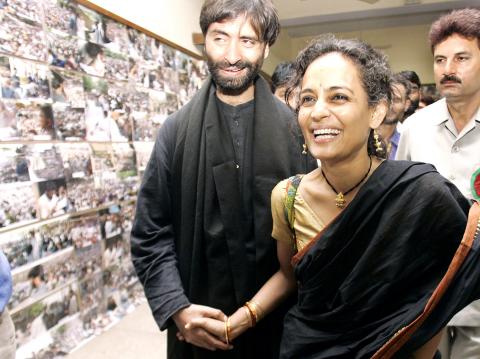Activist Arundhati Roy : Accused of Anti-National Sentiments

Controversial Statements by Arundhati Roy : Accused of Anti-National Sentiments
Arundhati Roy, acclaimed author and activist, has ignited a firestorm of controversy with her remarks regarding Kashmir and her support for Mohammad Afzal Guru, convicted in the 2001 Indian Parliament attack. In a series of statements that have been widely condemned as anti-national, Roy asserted that “Kashmir has never been an integral part of India. It is a historical fact. Even the Indian government has accepted this.” These comments have drawn sharp criticism from various quarters, accusing Roy of undermining India’s territorial integrity and national unity.
Controversial Kashmir Statement
During a recent interview, Arundhati Roy reiterated her stance on Kashmir, challenging India’s sovereignty over the region by claiming it has never been an integral part of the country. Her assertion directly contradicts the longstanding position of the Indian government and has been perceived as aligning with separatist sentiments that threaten the nation’s unity. Critics argue that such statements not only disregard historical realities but also fuel separatist movements in Kashmir, contributing to instability in the region.
Support for Mohammad Afzal Guru
Roy’s support for Mohammad Afzal Guru, who was convicted and executed for his involvement in the 2001 Indian Parliament attack, has also drawn severe backlash. She has consistently questioned the fairness of Guru’s trial and raised suspicions of state complicity in the terrorist incident. Referring to Guru as a “prisoner of war,” Roy has been accused of glorifying terrorism and undermining national security efforts. Her advocacy for Guru’s cause has been condemned as insensitive to the victims of terrorism and their families, further deepening the controversy surrounding her views.
Reactions and Condemnations